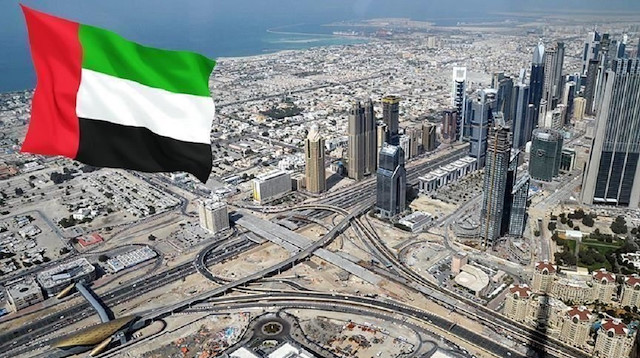
Anadolu Agency gets details of secret UAE officials meeting where they mull softening of stance on regional rival Iran
Leaders of the United Arab Emirates have held a secret meeting where they discussed the need to revise their policy toward Iran, sources close to the Gulf state told Anadolu Agency.
The meeting, which followed Iran's claim of downing a U.S. drone which had entered its territory on June 20, was attended by Mohammed bin Zayed Al Nahyan, the crown prince of U.A.E., said the source who asked not to be name for fear of reprisal.
Mohammed bin Rashid al-Maktoum, vice-president of the U.A.E., slammed the existing foreign policy.
"We should completely review our foreign policy. We spend hundreds of millions of dollars every day. So, what do we earn in return?" said al-Maktoum, who also serves as U.A.E. prime minister and ruler of Dubai, the source added.
Al-Maktoum stressed the country should give up its aggressive and interventionist foreign policy "as soon as possible".
He reiterated that this costly foreign policy was reaping no benefits to the Emirates.
"What is our benefit in a regime change in Sudan or Libya? You pin hopes on the U.S. to strike Iran but [Donald] Trump called for dialogue [with Iran] even after downing of a U.S. drone.
"[...] Iran responds directly of through Houthis in Yemen, attacking the U.A.E. and Saudi Arabia. All foreign investors flee the country even if a rocket falls into U.A.E. We cannot even hold on to Asian workers."
"We have spent money for [Khalifa] Haftar. We should give up spending money and look for alternatives which should be political instead of military," he said, referring to Libya's renegade commander.
Crown Prince Al Nahyan has taken the criticism positively and has agreed on making some changes to the foreign policy, the source said.
The U.A.E. has come under fire on social media for its policies in the region. This change in foreign policy is also a step to improve its public image.
Al-Maktoum is a known opponent of U.A.E.'s interventionist policy. Dubai, which he leads, has strong commercial ties with Iran with many Iranian businesses flourishing in the luxury shopping paradise.
The U.A.E. follows Saudi Arabia's stance on Iran in the region.
The first shift in policy of the U.A.E. toward Iran was witnessed in May when the U.S. blamed Iran for an oil tanker attack in the strategic Strait of Hormuz. Sheikh Abdullah bin Zayed al-Nahyan, foreign minister of the Emirates, had said: "It is necessary to have clear evidence for the accusation against Iran."
In the following days, the U.A.E. announced to retreat troops in Yemen lowering support to the Saudi-led coalition. Also, top security officials of U.A.E. met their Iranian counterparts for a coast guard meeting in Tehran after a six-year hiatus.
The last sign of growing intimacy between the two countries was that two banks from the U.A.E. approved financial transactions with Iran, despite U.S. banking sanctions.







